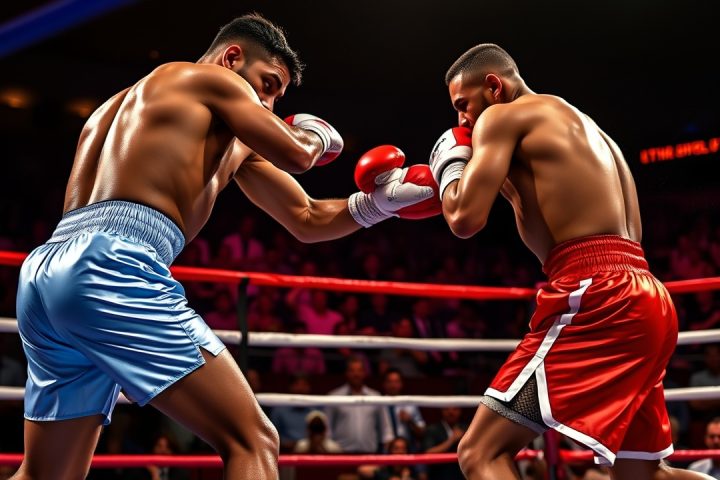Transformation of Rocky Balboa’s Boxing Career
World Boxing News delves into the transformation of Rocky Balboa’s fictional boxing career, tracing his journey from an underdog to a legendary champion by the sixth installment of the franchise. Initially, Balboa’s record stood at 44 wins and 20 losses when he was unexpectedly offered a fight against heavyweight champion Apollo Creed. This opportunity arose from a promotional gimmick, as Creed’s original opponent sustained an injury, leading to a desire for a local fighter to take the spotlight during the Bicentennial festivities.
From Underdog to Champion
At the inception of the series, creator Sylvester Stallone intended to produce just one film. Balboa’s rough record was an integral part of the underdog narrative that resonated with audiences. After losing to Creed, Balboa’s record would change to 44-21, but the public’s appeal for a sequel, Rocky II, prompted Stallone to consider extending Balboa’s arc.
Crafting the Sequel
In crafting Rocky II, Stallone wrote a narrative that allowed Balboa to achieve victory against Creed in their rematch, effectively setting the stage for additional sequels like Rocky III and Rocky IV, all of which necessitated a reevaluation of Balboa’s boxing record. By the time of Rocky Balboa, the sixth film, the character’s record was adjusted to include more victories over formidable opponents, such as Creed, Clubber Lang, and Ivan Drago, thus enhancing his legacy.
Evolution of Balboa’s Record
Recognizing the unrealistic portrayal of a champion with numerous losses, Stallone modified Balboa’s record throughout the series. This evolution reflected not only the character’s growth but also the shift in narrative focus from a gritty realism to the triumph of the human spirit.
The article breaks down Balboa’s record at various points in the series. Before the fight with Creed, his record was highlighted as 44-20, with 38 knockouts, labeling him as a local fighter rather than a serious contender. His subsequent defeat to Creed, while unexpected, led to a revised record of 44-21. In the sequel, a hard-fought victory against Creed changed his standing to 45-21, where he then defended his title ten times, solidifying his status.
The challenges continued with losses and victories against Clubber Lang and ultimately culminating in a win against Drago, after which Balboa faced retirement due to health concerns, only to return for a final bout against Mason ‘The Line’ Dixon. This showdown updated his record to a striking 57 wins and 7 losses, a stark deviation from his original record and better suited to align with the image of a celebrated champion.
The Heart of the Narrative
Through the lens of cinematic history, Stallone has shaped Balboa from a rough fighter to an iconic symbol of perseverance, downplaying the early records in favor of a legacy that emphasizes triumph and resilience over accuracy. As Stallone articulated,
“the heart of the narrative lies not in win-loss statistics but in the undying spirit of a fighter willing to rise despite challenges.”
In summary, Rocky Balboa’s changing record epitomizes the cinematic narrative more than the realities of boxing, serving as an illustration of the tenacity and grit that Stallone aimed to depict throughout the series. It is a narrative defined by heart, where the final score, while impressive, is secondary to the message of pushing forward against life’s adversities.




